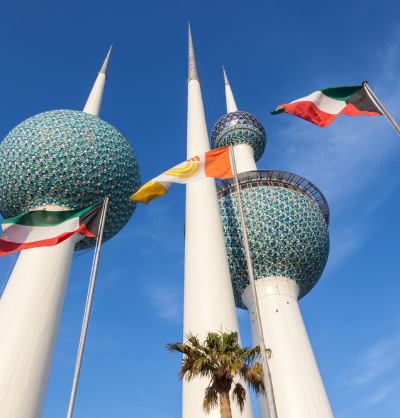THE political storm brewing in the US has already produced some casualties. Nikki Haley, Ron DeSantis and Vivek Ramaswamy have all been swept aside by a reinvigorated Donald Trump who is set to again square-off against incumbent US President Joe Biden in the upcoming presidential elections in November this year. But, more than ever, this election will likely see an uptick in voters choosing their candidate on the basis of foreign policy and US security issues.
With war waging between Israel and Palestine in Gaza, and the looming threat of contagion into Lebanon and the Red Sea (for now), it is certain that the next presidential term will be largely defined by conflict management and securing US interests in a rapidly changing Middle East. To be sure, some aspects of the region remain predictable. For instance, the states of the Gulf Cooperation Council (GCC) continue to form a bedrock of economic and political stability in an otherwise turbulent Middle East. At the same time, the detente between Iran and Saudi Arabia continues to hold. Yet the harassment of international shipping by the Houthis adjacent to Yemen’s Red Sea coast has brought the US to lead in the formation of a multilateral maritime security initiative called Operation Prosperity Guardian as a mechanism for deterrence and, if that is insufficient, coercion.
*****
The Republican primary campaign was hard-fought, and overwhelming negative in nature, with little attention paid to policy issues, but rather on electability and competency, namely that of President Trump and his lengthy in-tray of pending criminal and civil legal trials. Of the three main Republican primary candidates, only Nikki Haley posed (quasi) serious challenge to the overwhelming dominance of the Trump campaign, winning two primaries in the District of Columbia (D.C.) and Vermont, and receiving a little over 3.8 million votes nationwide prior to suspending her campaign on 6 March. While President Trump sought to appeal his populist ‘Make America Great Again’ (MAGA) right-wing Republican base, Ambassador Haley saw broad appeal amongst moderate Republicans and independent voters.
The Haley campaign however endeavoured to play to her foreign policy credentials, frequently opining to her time at the UN and underscoring her neoconservative views as it relates the ongoing turmoil in the Middle East. Having served just under two years as US Ambassador to the UN in the Trump Administration from January 2017 to December 2018, Haley definitely has some noteworthy experience to draw on. Nevertheless, she failed to comprehensively translate her notably experience in government into votes with the Republican primary electorate, only ever marginally eroding President Trump’s substantial lead over her.
While Haley’s presidential run is over, she has cemented her creditability for another potential future White House bid four years from now. Her brand of foreign policy is arguably far more to the taste of some in the traditional Republican Party neoconservative establishment like former UN Ambassador and National Security Advisor John Bolton. After all, Haley has offered plenty of insights into what her hypothetical administration’s foreign policy mantra would have looked like as it relates to the Middle East, particularly Iran.
In the aftermath of the drone strike that killed three American troops in January (2024), Haley has, over the course of multiple media interviews, called for pursuing Iran’s Islamic Revolutionary Guard Corps leadership, targeting the resources of Iran-backed militias throughout the region, and ending financial support to Iran by virtue of new sanctions.[i]
Her hawkish stance on Iran should come as no surprise, throughout her time in the Trump administration she was infamously known as President Trump’s ‘Iran whisperer.’[ii] In July 2017 she reportedly made the persistent case for decertification of the Joint Comprehensive Plan of Action (JCPOA), otherwise known as the Iran Nuclear Deal. The following month she visited the International Atomic Energy Association (IAEA) in Vienna in which she rigorously questioned officials about the lack of Iranian compliance with the JCPOA. This visit was then underscored by a speech at the American Enterprise Institute (AEI) in Washington, D.C., in which she as scathing about Iran, stressing that ‘The Islamic Republic of Iran was born in an act of international lawbreaking […]’, and highly critical of the Nuclear Deal itself.[iii] Haley’s persistent lobbying against Iran and the JCPOA both publicly and privately bore fruit by October 2017 when President Trump decided to decertify the deal.
While less eventful, the Democratic Presidential Primaries have proven at times challenging for presumptive nominee Joe Biden. The winds of left-wing grassroots and Arab-American dissatisfaction of the Biden administration’s foreign policy approach to Israel-Hamas War and Gaza’s dire humanitarian situation has been evident at the ballot box. On the 27 February Michigan primary, 101,436 voters (13.2%) opted to vote ‘uncommitted’ rather than for incumbent President, largely in an attempt to pressure the administration into supporting an immediate ceasefire in Gaza.[iv] In Arizona, pro-ceasefire organisers urged voters to cast their ballot for fringe candidate Marianne Williamson in the state’s primary to register protest against Biden, an effort that banked her 15,666 votes (3.8%).[v] While these small totals have no bearing on Biden’s clinching of his Party’s nomination, they demonstrate that his administration’s Gaza policy could prove problematic in some marginal swing states like Michigan and Arizona. Those that registered protest against him in the primaries account for similar totals of his margin of victory in those states in the 2020 Presidential election.
These domestic political realities may even have started to affect American decision-making and rhetoric as it relates to the Middle East. The US’s decision not to veto (abstain) UN Security Council Resolution 2728 (2024) on 25 March demanding an immediate ceasefire for the month of Ramadan, perhaps suggests, at least in part, President Biden’s Gaza policy also has one eye on his political fortunes and re-election.[vi] Meanwhile, the highest ranking Democrat in Congress, Senate Majority Leader Chuck Schumer, a staunch Biden ally, has publicly called for fresh elections in Israel, asserting Prime Minister Benjamin Netanyahu is an “[…] obstacle to peace”, and that “[his] coalition no longer fits the needs of Israel.”[vii]
While the result of this November’s Presidential election is far from certain, the impact of American foreign policy decisions in the Middle East on the potential outcome of the election is.
This article is dedicated in loving memory of my American friend, William “Spence” Spencer, a devoted humanitarian and an advocate for human rights in the Middle East and beyond.
Endnotes:
[i]‘Haley shows off foreign policy chops – and her contrast with Trump – as she details how she would respond to drone attack’, CNN, 30 January, 2024, https://edition.cnn.com/2024/01/30/politics/nikki-haley-drone-attacks-response/index.html
[ii]’Nikki Haley was Trump’s Iran whisperer’, Politico, 13 October 2017, https://www.politico.com/story/2017/10/13/nikki-haley-trump-iran-whisperer-243772
[iii]‘Nikki Haley Address on Iran and the JCPOA’, AEI, 5 September, 2017, https://www.aei.org/research-products/speech/nikki-haley-address-on-iran-and-the-jcpoa/
[iv]‘2024 Michigan Election Results, Presidential Primary’, Michigan Department of State, 19 March 2024, https://mvic.sos.state.mi.us/votehistory/Index?type=C&electionDate=2-27-2024
[v]‘2024 Presidential Preference Election’, Arizona Secretary of State, 19 March 2024, https://results.arizona.vote/#/featured/59/0
[vi]‘Security Council Demands Immediate Ceasefire in Gaza for Month of Ramadan, Adopting Resolution 2728 (2024) with 14 Members Voting in Favour, United States Abstaining’, UN Media Coverage and Press Releases, 25 March 2024, https://press.un.org/en/2024/sc15641.doc.htm
[vii]‘Majority Leader Schumer Delivers Major Address Calling On The Israeli Government To Hold Elections’, Senate Democrats, 14 March 2024, https://www.democrats.senate.gov/newsroom/press-releases/majority-leader-schumer-delivers-major-address-calling-on-the-israeli-government-to-hold-elections








